Africa
At least 120 children abducted by Al Shabab in northern Mozambique, HRW says
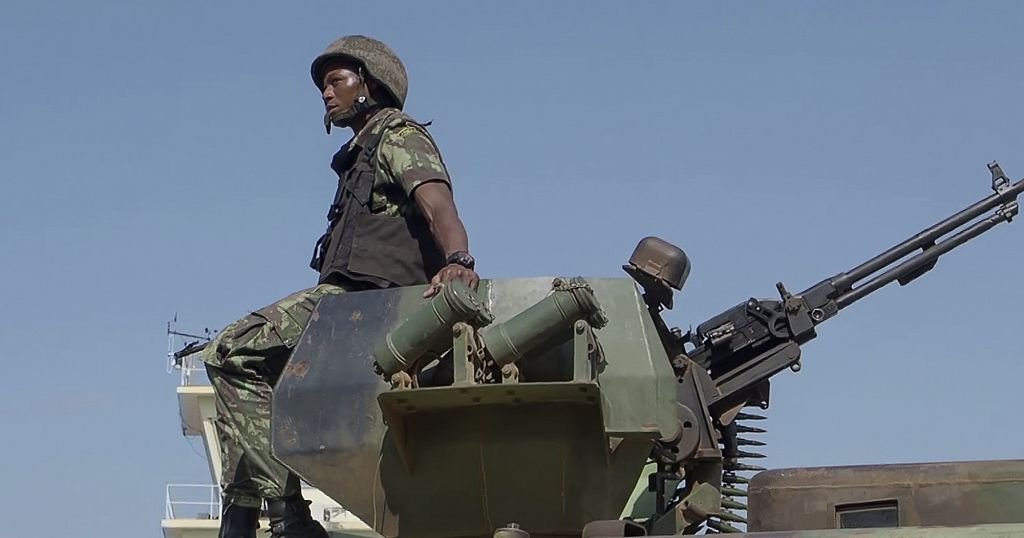
At least 120 children in northern Mozambique have been kidnapped by jihadist insurgent group Al Shabab, international NGO Human Rights Watch said on Tuesday.
The children are reportedly being used to transport stolen goods, perform forced labour, and in some cases serve as child soldiers or be forced into marriage.
Mozambique has been battling the Islamist insurgency in Cabo Delgado province since 2017. Government forces have struggled to contain the violence, relying on support from troops sent by Rwanda, South Africa, and other regional partners.
In 2020, the insurgents carried out a wave of attacks in which they beheaded dozens of people, including children.
Witnesses have said that children abducted from towns and villages have been used as fighters in subsequent attacks.
The violence has displaced more than 600,000 people and spilled into neighboring provinces, according to the United Nations.
‘Neglected crisis’
Human Rights Watch says there has been a resurgence of attacks and child kidnappings in the last two months and called on Mozambique’s government to do more to find the children and prevent further abductions.
The problems in Cabo Delgado were largely overshadowed by Mozambique’s deadly and long-running post-election protests last year. Cabo Delgado has also been battered by several recent cyclones and hurt by US President Donald Trump’s cuts to foreign aid.
The Norwegian Refugee Council’s Secretary General, Jan Egeland, visited Cabo Delgado this month and described the situation in northern Mozambique as a neglected crisis.
“Climate shocks, increasing violence and spiralling hunger are having a terrible impact on the population,” Egeland said.
Africa
UN warns of worsening violence and mass displacement in Haiti, in new report
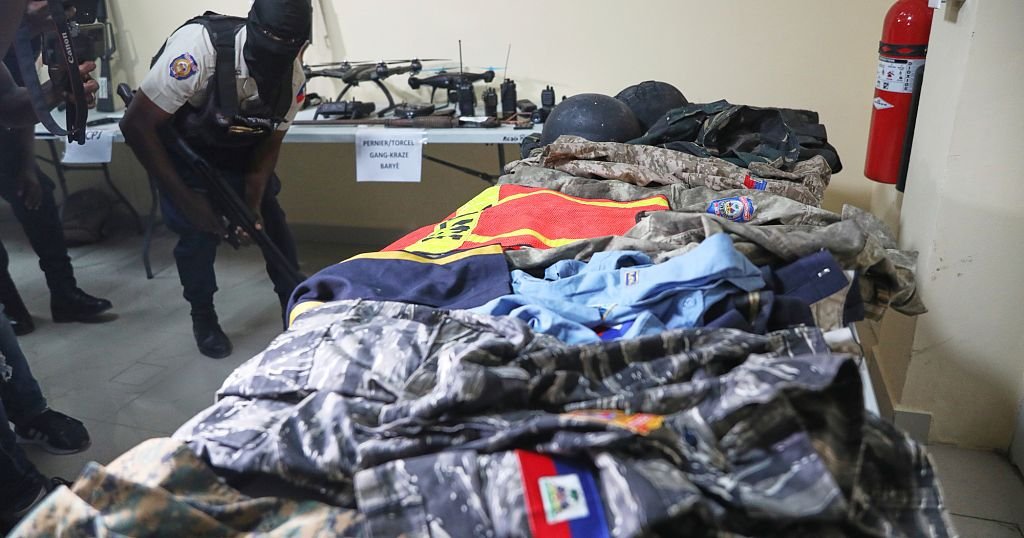
Violence in Haiti is escalating sharply, with gang activity reaching new levels across the country. According to a new report from the United Nations, the surge began in October 2024 and has continued through June of this year. While Port-au-Prince remains a hotspot, the UN highlights that the chaos is now spreading rapidly into rural regions, where state authority is almost entirely absent.
“The escalating gang violence outside Port-au-Prince, where the presence of the state is extremely limited, has claimed over 1,000 lives and forced hundreds of thousands to flee since October 2024,” said Ravina Shamdasani, spokesperson for the Office of the UN High Commissioner for Human Rights.
The report also notes a troubling rise in human rights abuses committed by so-called self-defence groups. These armed civilian groups initially emerged in response to gang violence but are now implicated in growing numbers of violations themselves. The UN is urging urgent international intervention.
“The human rights violations and abuses that we have documented are further evidence of why Haiti and the international community urgently need to step up to end this violence,” Shamdasani added.
According to the UN, a mass killing in Pont-Sondé in the Lower Artibonite region in October 2024 marked a major turning point. What followed was a wave of brutal attacks, displacements, and growing instability.
In one of the most striking examples, the town of Mirebalais in the Centre department was completely emptied. All 100,000 residents fled as violence surged earlier this year.
The UN continues to call for coordinated international action to restore security and protect civilians, warning that without intervention, Haiti’s humanitarian crisis will only deepen.
Africa
Uganda reopens border with M23-held eastern DRC
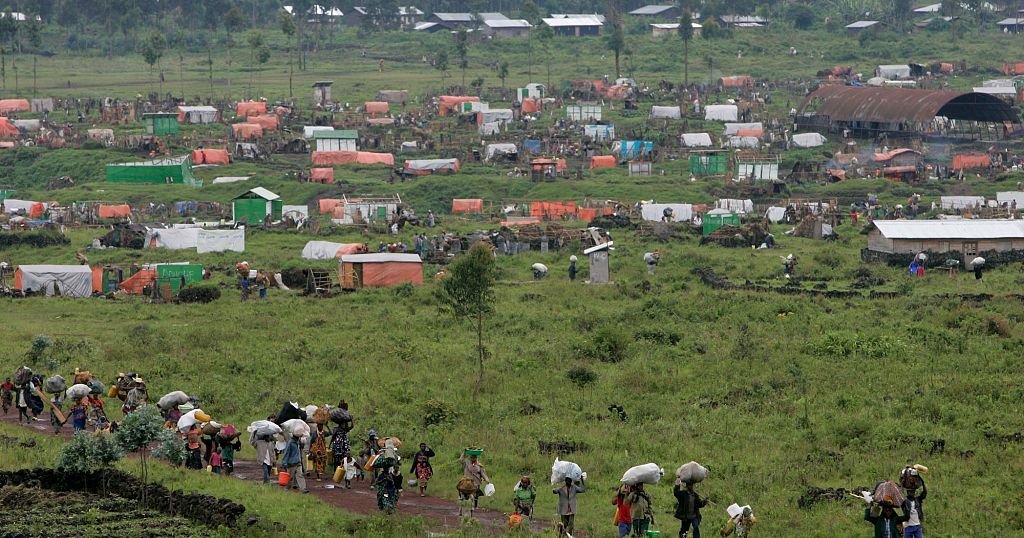
Six months after closing key border crossings due to rebel advances, Uganda has reopened its border with the Democratic Republic of Congo (DRC). The move comes after the seizure of Goma by the M23 rebel group, which led to the shutdown of crossings at Bunagana and Ishasha in Congo’s North Kivu province.
Ugandan military assistant Chris Magezi confirmed the reopening on social media, stating that it was ordered directly by President Yoweri Museveni. Magezi also noted that those responsible for initially closing the crossings and disrupting trade between the two communities will be investigated.
The decision follows the recent signing of a peace agreement in Washington, where Rwanda and the DRC agreed to support future talks between the M23 rebels and the Congolese army.
The M23 rebel group, largely made up of ethnic Tutsis, resumed its offensive in late 2021. Fighting intensified significantly this year, with the group capturing large areas of eastern Congo, including the strategic city of Goma.
The Congolese government has repeatedly accused Rwanda of supporting M23 with weapons and troops. These claims have been backed by the United States, which has cited credible intelligence reports. Rwanda has denied any direct involvement with the rebel group.
With the border reopened and international diplomacy underway, regional dynamics are shifting. The success of upcoming peace talks will depend heavily on continued pressure from international stakeholders and a willingness among parties to compromise.
Africa
Somalia-Ethiopia tensions escalate as port deal talks stall
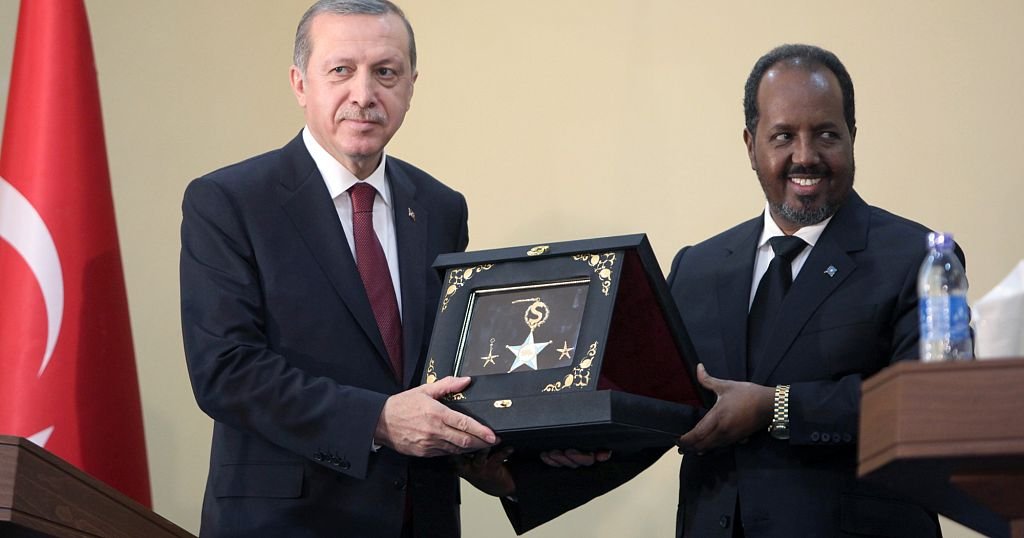
Turkish President Recep Tayyip Erdoğan hosted Somali President Hassan Sheikh Mohamud in Ankara on Friday for a high-level meeting focused on strengthening bilateral relations, particularly in the areas of counterterrorism and regional cooperation.
The talks were held behind closed doors at the Presidential Complex, according to a statement released by Türkiye’s Communications Directorate.
The meeting comes as tensions between Somalia and Ethiopia escalate as mediation efforts over a controversial port access agreement stall. The talks, brokered by Turkey since February 2024, aim to resolve a dispute triggered by a deal signed on January 2024 between Ethiopia and the self-declared Republic of Somaliland.
Under the agreement, Ethiopia would gain access to a 20-kilometre stretch of Somaliland’s coastline. In exchange, Somaliland would receive support for its long-sought international recognition. Somalia, which considers Somaliland part of its territory, strongly opposes the deal, calling it a violation of its sovereignty.
Mogadishu has launched a diplomatic campaign to block the agreement and has appealed to the United Nations for intervention.
On July 3, Ethiopian Prime Minister Abiy Ahmed reiterated his government’s position, describing sea access as essential for Ethiopia’s economic development. His comments echoed earlier statements from January that were strongly condemned by Somali officials.
Somalia again denounced the deal, referring to it as a “land grab,” and urged the international community to take action.
The standoff has attracted the attention of regional powers. Earlier this week, Egyptian President Abdel Fattah el-Sisi met with Somali President Hassan Sheikh Mohamud. During the meeting, Egypt pledged to strengthen military cooperation and support Red Sea maritime security.
No breakthrough has been reached in the Turkey-led negotiations, and no further rounds of talks have been scheduled.
-

 Asia4 days ago
Asia4 days agoA torpedoed US Navy ship escaped the Pacific in reverse, using coconut logs. Its sunken bow has just been found
-
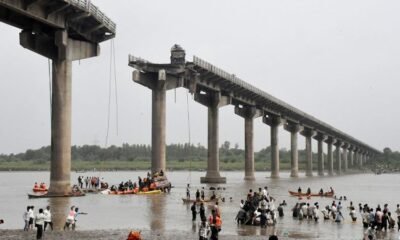
 Asia4 days ago
Asia4 days agoGujarat state: Bridge collapse kills 9 in India
-

 Europe4 days ago
Europe4 days agoExtreme heat is a killer. A recent heat wave shows how much more deadly its becoming as humans warm the world
-

 Europe4 days ago
Europe4 days agoTrump promised 200 deals by now. He’s gotten 3, and 1 more is getting very close
-
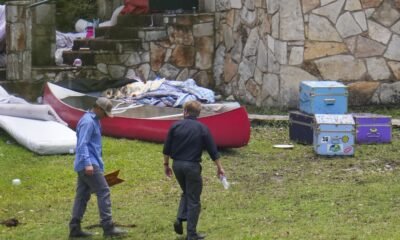
 Lifestyle5 days ago
Lifestyle5 days agoFaith-based camps like those hit by Texas floods are rite of passage for many
-
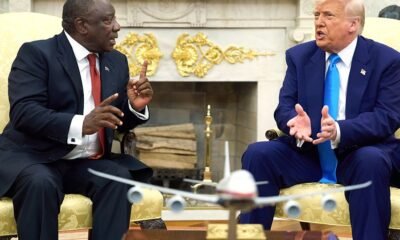
 Africa5 days ago
Africa5 days ago30% on South African imports: Ramaphosa hits back at new Trump tariffs
-

 Lifestyle5 days ago
Lifestyle5 days agoArmani couture channels black as maestro misses Paris bow for 1st time, days from 91st birthday
-
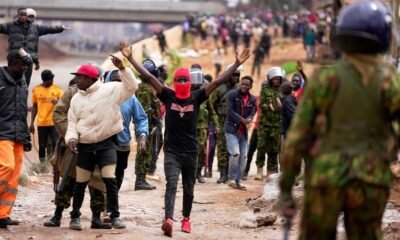
 Africa5 days ago
Africa5 days agoUN Human Rights Office says ‘deeply troubled’ by Kenya protester deaths




